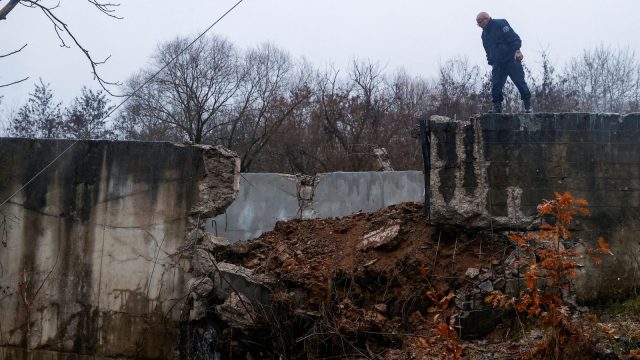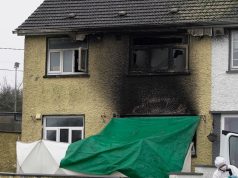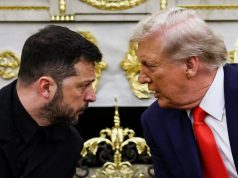Eight people have been arrested after a powerful explosion in Kosovo damaged a canal, temporarily stopping power and water supplies to the country’s cities.
Prime Minister Albin Kurti blamed Friday’s blast in Vrage, 37 miles (60km) north of capital Pristina, on groups supported by Serbia.
Police have detained eight people suspected of being part of the attack, which disrupted the supply of water to some cities and major power plants, according to interior minister Xhelal Svecla.
“Somehow we managed to fix the damage, arrest the suspects and confiscate a huge arsenal of weapons,” he said in a live-streamed news conference.
Kosovo police chief Gazmend Hoxha said officers raided 10 locations, seizing more than 200 military uniforms, six shoulder-fired rocket launchers, long weapons, pistols and ammunition.
He said around 15 to 20kg of explosives were used and the eight people detained “are suspected of inciting, organising and even executing these recent terrorist acts and in particular the one in the canal of Iber Lepenc”.
Police said most of the people arrested belong to local Serb organisation Civilna Zastita (Civil Protection), which the government in Kosovo has declared as a terrorist group.
Serbia’s President Aleksandar Vucic denied what he said were “baseless accusations” about Belgrade’s involvement.
Security was already heightened after two recent attacks where hand grenades were hurled at a police station and municipality building in northern Kosovo, where ethnic Serbians live.
The EU and the US strongly denounced the explosion and demanded that the perpetrators be brought to justice.
Kosovo-Serbia relations remain tense despite efforts by the international community to normalise them.
Kosovo was a Serbian province until NATO’s 78-day bombing campaign in 1999 ended a war between Serbian government forces and ethnic Albanian separatists in Kosovo.
Kosovo proclaimed independence in 2008, which is not recognised by Belgrade.
Brussels and Washington are urging both sides to implement agreements that Mr Vucic and Mr Kurti reached in February and March last year.
Since 1999, NATO has been leading a peace-support operation in Kosovo, with Italian troops among the forces currently in the country.
















